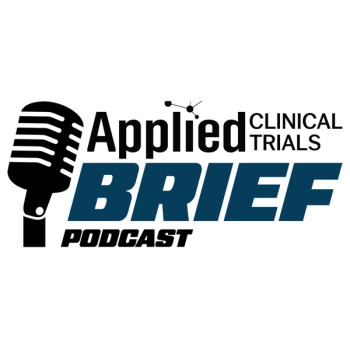
Explore which factors—audience relevance, content fit, and engagement quality—determine the best use of platforms like TikTok, Reddit, and Spotify for targeted patient recruitment campaigns.

Explore which factors—audience relevance, content fit, and engagement quality—determine the best use of platforms like TikTok, Reddit, and Spotify for targeted patient recruitment campaigns.

In today’s ACT Brief, we look at how real-world data and AI are helping prevent costly study rescue, review the FDA’s approval of a first-in-class menin inhibitor for NPM1-mutated AML, and explore new insights on closing biomarker-testing gaps in oncology.

FDA has approved Komzifti (ziftomenib) as the first once-daily, oral menin inhibitor for adults with relapsed or refractory NPM1-mutated AML, supported by Phase II KOMET-001 data showing meaningful remission rates, durable responses, and a manageable safety profile in a population with limited treatment options.

In today’s ACT Brief, we examine declining site satisfaction and strategies to improve sponsor-site collaboration, review a new partnership enabling automated eSource-to-EDC data transfer, and highlight Gilead’s positive Phase III ARTISTRY-1 trial results in virologically suppressed adults with HIV.

The ARTISTRY-1 Phase III trial demonstrated that a single-tablet regimen of bictegravir 75 mg/lenacapavir 50 mg maintains viral suppression and simplifies therapy for people living with HIV, supporting safer, more convenient treatment options.

A new integration between Advarra and IgniteData will enable secure, automated transfer of clinical trial data from EHRs and eSource systems to sponsor EDCs.

Melissa Hutchens, vice president of research & benchmarking at WCG, and Jimmy Garza, senior director of clinical operations at Bayer, discuss findings from the latest WCG CenterWatch Global Site Relationship Survey, revealing a decline in overall site satisfaction. They explore key drivers behind this trend, including technology usability, communication gaps, and limited site input in protocol design, and share actionable approaches to strengthen sponsor-site partnerships and improve study execution.

In Vibrance-2, oral alixorexton significantly improved wakefulness and reduced excessive daytime sleepiness with a favorable safety profile, positioning the OX2R agonist for rapid advancement into Phase III trials.

In today’s ACT Brief, we look at how artificial intelligence is reshaping drug development decisions across pharma, discuss evolving sponsor oversight in site selection and protocol design, and review the FDA’s decision to update menopausal hormone therapy labels for clarity and safety.

Learn how organizing data assets, activating nonresearch HCPs, and building referral pathways with compliant remuneration can convert identified patients into enrolled participants.

In today’s ACT Brief, we look at how adaptive trial models are reshaping precision medicine, new data showing Wegovy’s impact on liver health, and Eli Lilly’s latest collaborations advancing genetic and RNA-based therapies.

Gain insight into why sponsors are taking a larger role in site selection and CRO oversight using robust data to validate feasibility before launch.

Novel trial designs are reshaping clinical development by improving efficiency, reducing redundancies, and accelerating timelines toward a new era of precision medicine.

Cogent Biosciences’ combination therapy cut the risk of disease progression or death by 50% compared to sunitinib alone, with a favorable safety profile and plans for FDA submission in early 2026.

In today’s ACT Brief, we explore how AI and tokenized data are improving patient-protocol matching, highlight Caplyta’s new FDA approval for major depressive disorder, and review the FDA’s expansion of its National Priority Voucher program.

Discover why strategies must vary by indication and geography and how data-driven matching with supported referrals can outperform site expansion and generic advertising.

Caplyta (lumateperone) demonstrated significant symptom improvement and favorable tolerability as an add-on treatment for adults with major depressive disorder, supported by two pivotal Phase III trials and long-term extension data.

In today’s ACT Brief, we explore how real-world data can improve protocol design and feasibility, highlight new findings from Novo Nordisk’s oral semaglutide program, and review Eli Lilly’s promising Phase II results for a novel amylin receptor agonist.

Understand how combining proprietary and real-world datasets with tokenization enables accurate protocol matching while maintaining privacy and compliance.

New post hoc and pooled analyses from the OASIS 4 trial presented at ObesityWeek 2025 show that oral semaglutide 25 mg improves glycemic control, cardiovascular risk factors, and weight outcomes across diverse patient populations.

New data from the Phase II study of eloralintide, a once-weekly selective amylin receptor agonist, reveal strong dose-dependent weight loss and a favorable tolerability profile, supporting advancement to Phase III trials.

In today’s ACT Brief, we highlight new insights on recruitment bottlenecks from Citeline’s Matt Holms, UCB’s first-in-class approval for TK2 deficiency, and why strong data foundations are key to realizing AI’s full potential in pharma.

Learn how incorporating real-world data at study design can improve feasibility, reduce amendments, and align eligibility with findable patients across geographies.

Kygevvi (doxecitine and doxribtimine) earned FDA approval as the first treatment for thymidine kinase 2 deficiency, supported by data from a Phase II trial and multiple retrospective studies showing marked survival improvement and motor milestone recovery.

Gain insight into how principal investigator scarcity, frequent protocol amendments, and uneven site performance undermine enrollment and extend timelines.

In today’s ACT Brief, we highlight new insights from TransCelerate on streamlining clinical data to reduce burden, explore how Phastar is using technology to accelerate drug development, and review Takeda’s seven-year dengue vaccine results confirming long-term efficacy and safety.

Seven-year results from the global TIDES study show sustained protection, strong safety, and enhanced efficacy with a booster dose, reinforcing Qdenga’s role in dengue prevention amid rising global infection rates.

In this episode of the ACT Podcast, Jeneen Donadeo, executive director of portfolio management at TransCelerate, and Laura Galuchie, senior director and TransCelerate program lead at Merck, discuss the findings from a recent TransCelerate and Tufts CSDD study revealing that nearly one-third of data collected in Phase III trials is non-essential. They explore why trial complexity continues to grow despite industry efforts toward efficiency and share strategies for reducing data burden while maintaining compliance.

In today’s ACT Brief, we explore how Eli Lilly’s orforglipron could become the first oral GLP-1 therapy reviewed under FDA’s new national priority program, and examine emerging regulatory and ethical frameworks shaping bispecific antibody research in oncology.

In this special recap of the most recent SCRS Global Site Solutions Summit, we highlight insights gained from KOLs on-site that emphasize the importance of communication and collaboration between sites and sponsors/CROs.